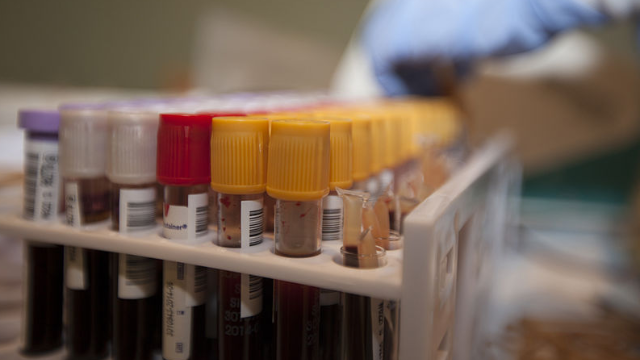 WIKIMEDIA, LCPL AUSTIN SCHLOSSERResearchers in Japan and Australia have developed the first blood test to detect amyloid-β protein buildup in the brain, one of the earliest hallmarks of Alzheimer’s disease. The findings, published on Wednesday (January 31) in Nature, show that measurements of the protein and its precursors in the blood can predict neural amyloid-β deposition and could pave the way for a cheap and minimally invasive screening tool for the disease.
WIKIMEDIA, LCPL AUSTIN SCHLOSSERResearchers in Japan and Australia have developed the first blood test to detect amyloid-β protein buildup in the brain, one of the earliest hallmarks of Alzheimer’s disease. The findings, published on Wednesday (January 31) in Nature, show that measurements of the protein and its precursors in the blood can predict neural amyloid-β deposition and could pave the way for a cheap and minimally invasive screening tool for the disease.
“This study has major implications,” Abdul Hye of King’s College London, who was not involved in the work, tells the BBC. “It is the first time a group has shown a strong association of blood plasma amyloid with brain and cerebrospinal fluid.”
Current methods to identify amyloid-β buildup in living people are limited to costly and sometimes highly invasive procedures, such as brain imaging with a PET scanner and spinal cord fluid extraction. So Katsuhiko Yanagisawa, a molecular biologist at the Center for Development of Advanced Medicine for Dementia in Japan, and colleagues set out to test whether the same information could be obtained from a blood sample.
Using immunoprecipitation and mass spectrometry, the team isolated and characterized amyloid proteins in the blood from a ...





















